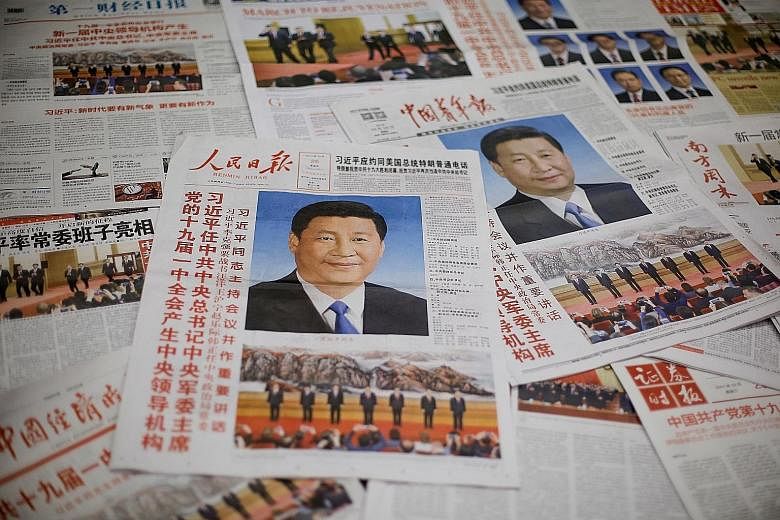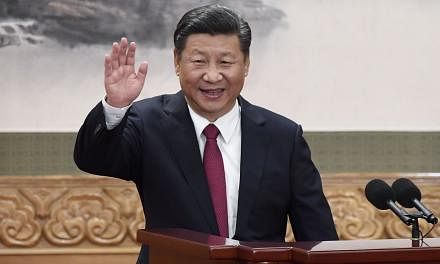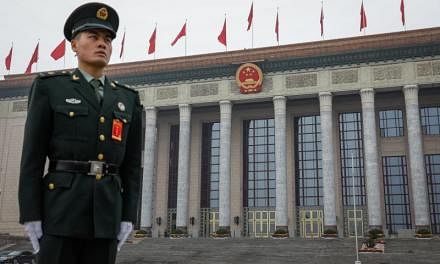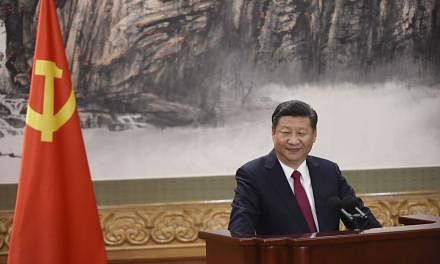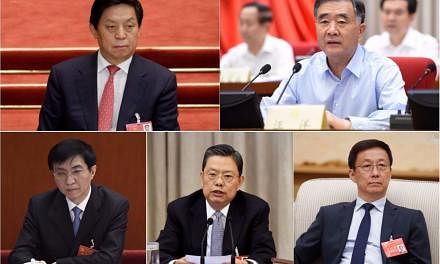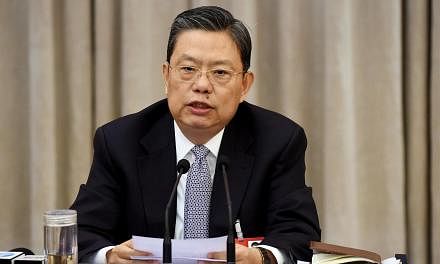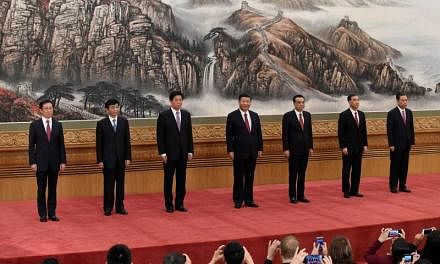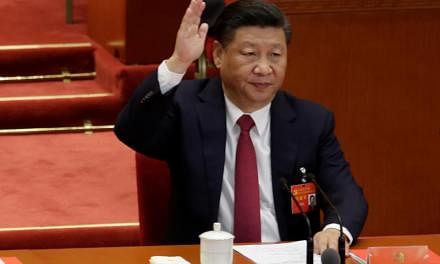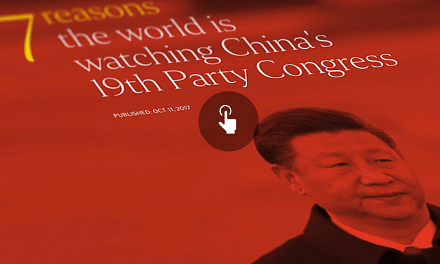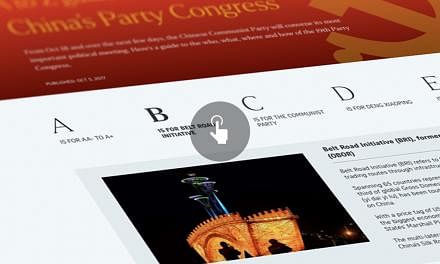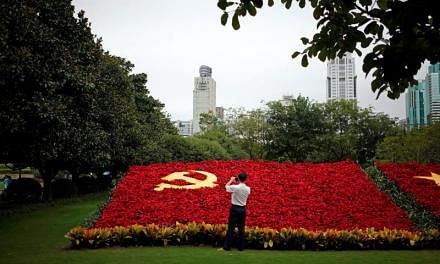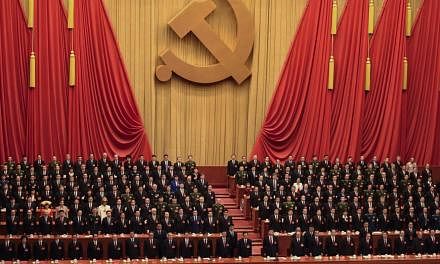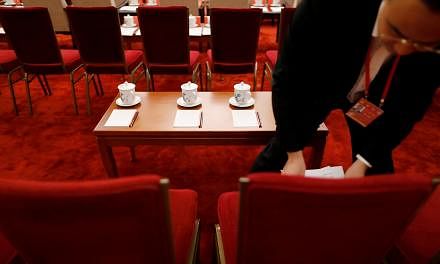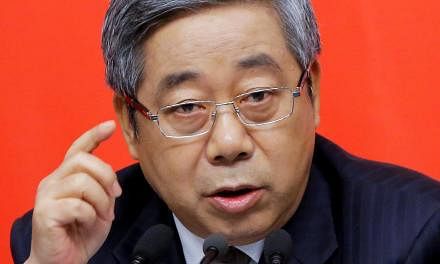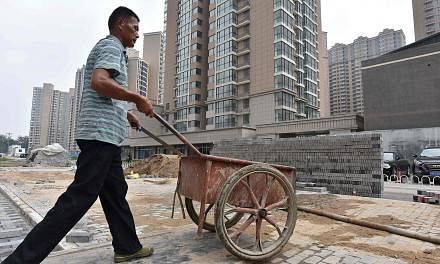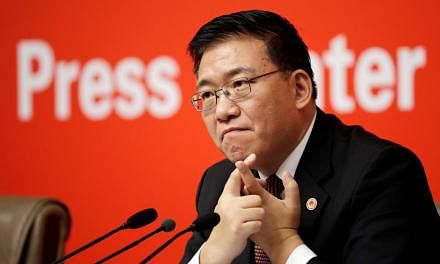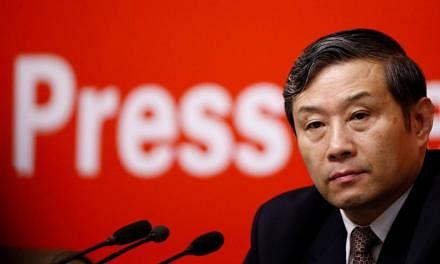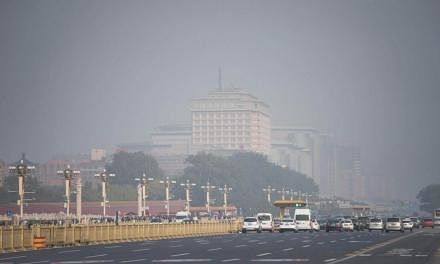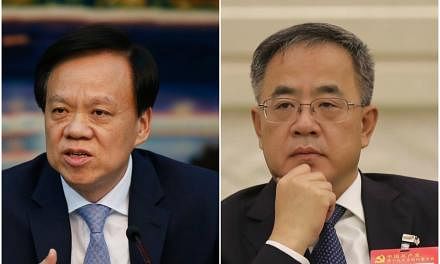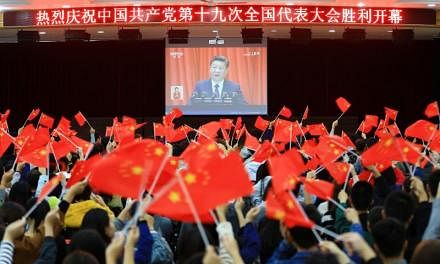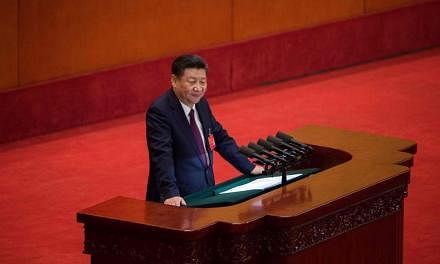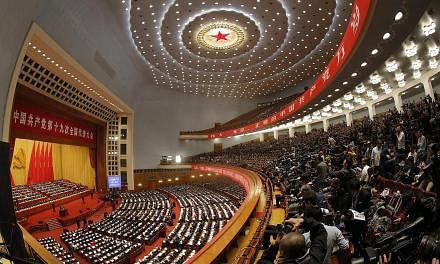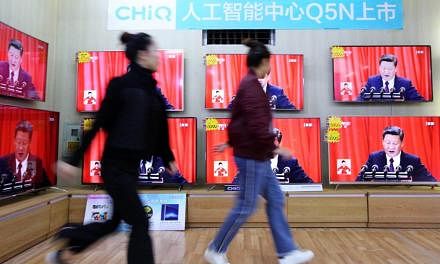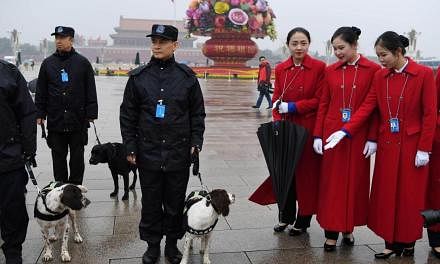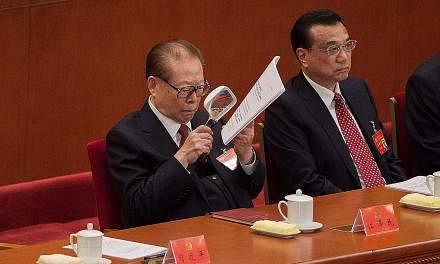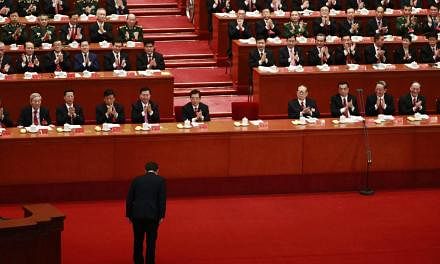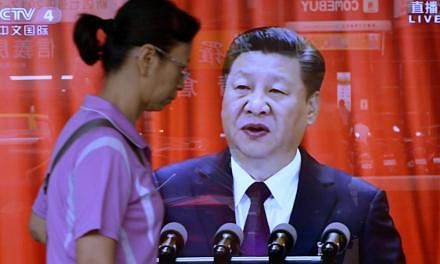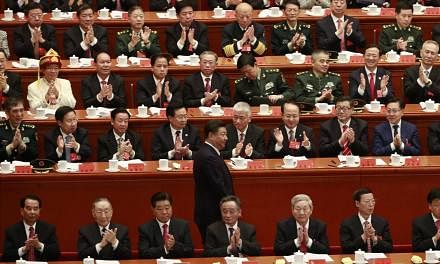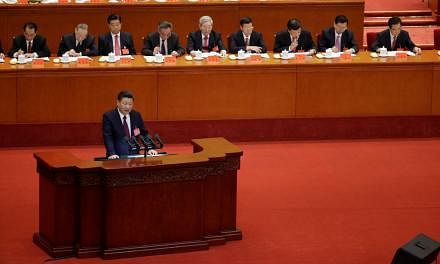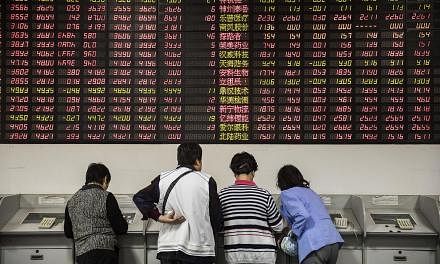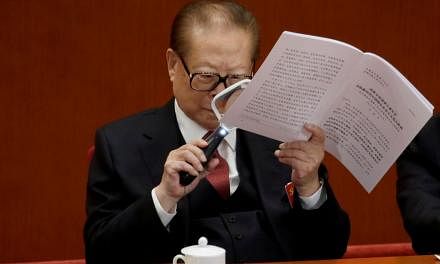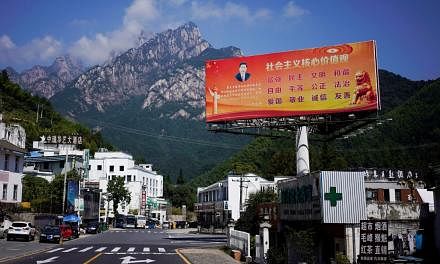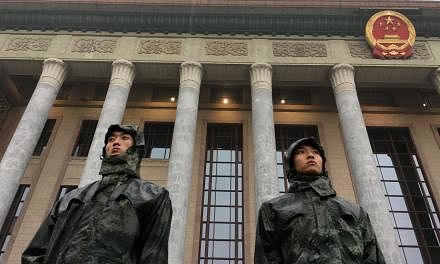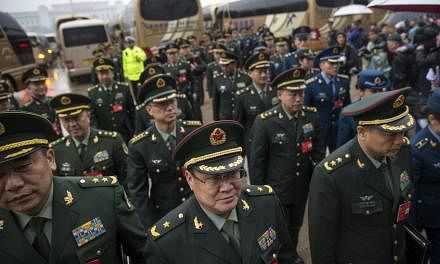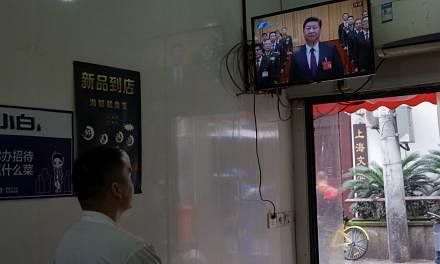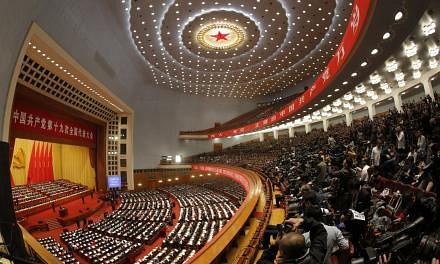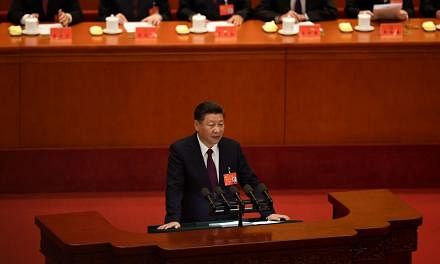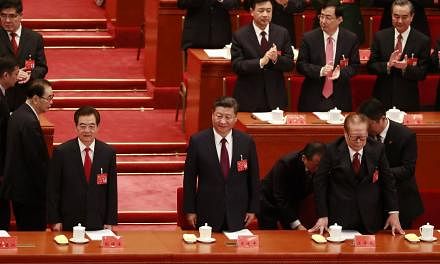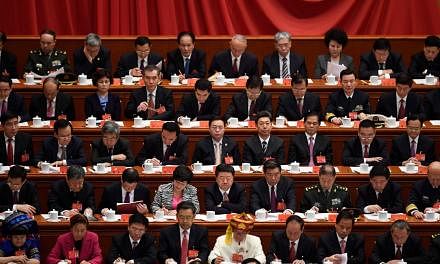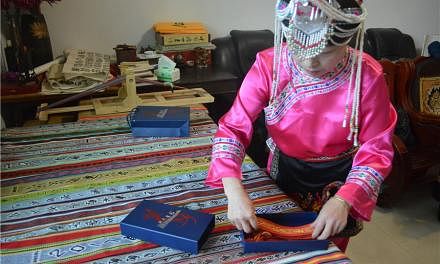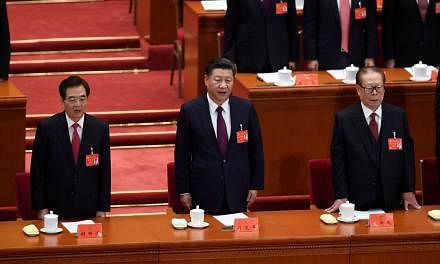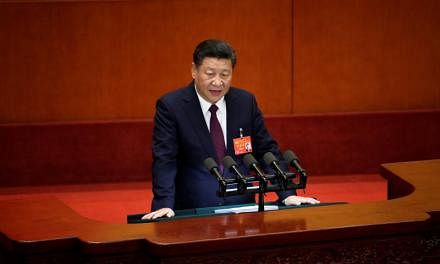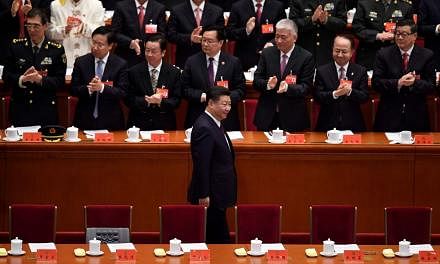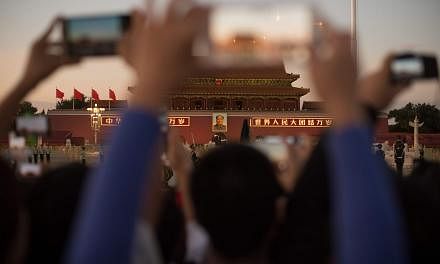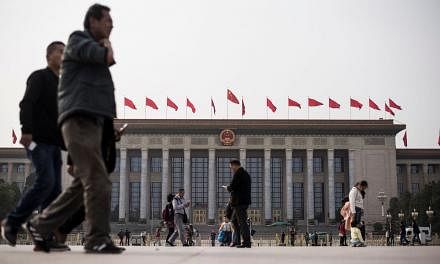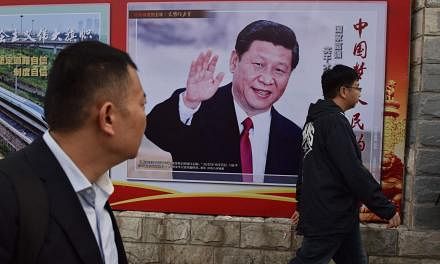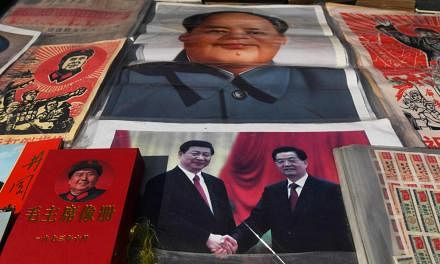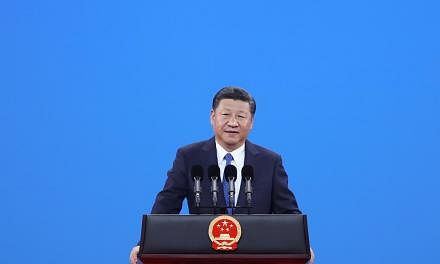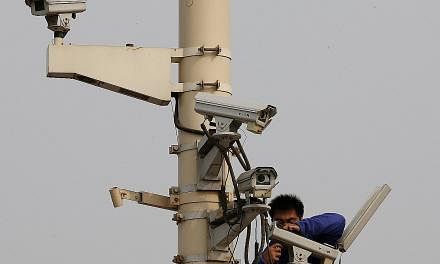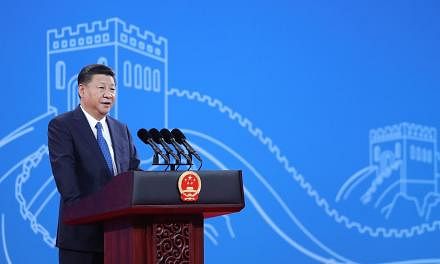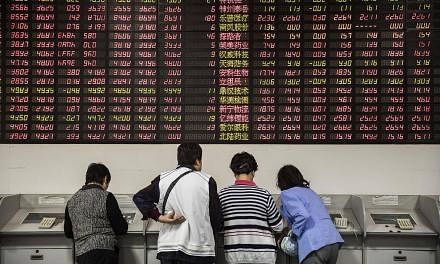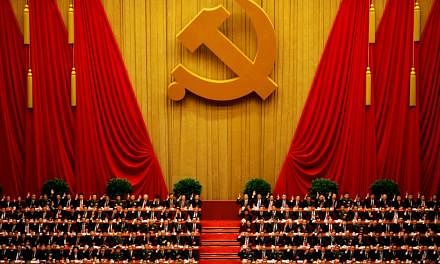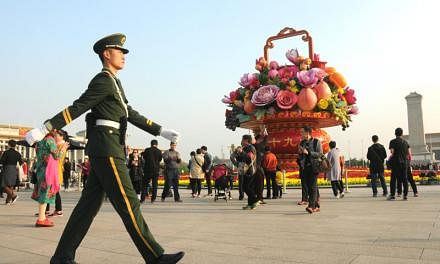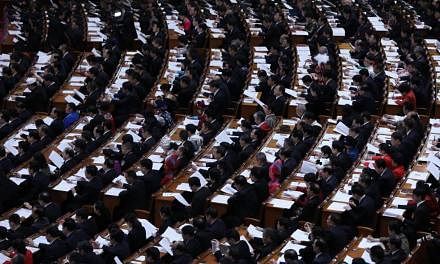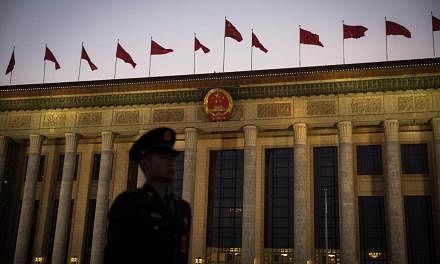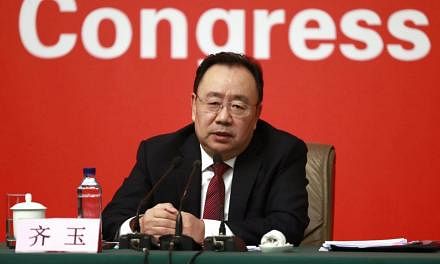After China's new top leadership team was unveiled on Wednesday, a beaming President Xi Jinping urged local and foreign journalists to "look closer" at China and report without flattery or embellishment, quoting even a Yuan dynasty poet for effect.
But his words caused dissonance among many Chinese, who said the authorities had clamped down hard on online and social media during the five-yearly political summit.
The censors' presence was most strongly felt on WeChat, which boasts more than 900 million active users in China, after new rules took effect this month.
One requires chat logs to be kept for at least six months, while a second holds group administrators liable for what members say.
"People around me have fallen silent in our chat groups, and I've seen a few groups get shut down," said a university librarian, who gave her name only as Ms Zhang.
To be on the safe side, many like her resorted to self-censorship or taking discussions offline.
"My son is studying overseas, and when I found out that some of his messages did not come through, I told him to stop sending me these things," she said.
TAKING DISCUSSIONS OFFLINE
People around me have fallen silent in our chat groups, and I've seen a few groups get shut down.
MS ZHANG, a university librarian who did not want to give her full name.
Many users also chose to tread carefully after WeChat's owner Tencent and other Chinese technology giants were given hefty fines last month for "failing to fulfil their management duties".
The social media platform showed it was fully on board when it announced - just as the Chinese Communist Party (CCP) Congress opened on Oct 18 - that mainland users would temporarily be disallowed from changing their profile picture and nickname.
"The reason it gave was its system is under maintenance till the end of the month," said a middle school teacher, who gave his name only as Mr Qiu, 45. "I don't know if it has anything to do with the meeting, but it seems quite coincidental."
Still, others chose to ignore the new rules issued by China's Cyberspace Administration, which warns that those caught disseminating rumours will be punished.
On Weibo, a Twitter-like service, netizens used code names to speculate on whether Mr Xi would retain anti-corruption czar Wang Qishan, 69, who has passed the unofficial retirement age of 68.
"I think zhang zhe (the elder) will still be in Congress after the meeting," said one user, whose post was deleted shortly after. Mr Wang retired, in keeping with party rules.
A retiree who gave his name as Mr Wang, 64, said Chinese netizens will always find creative ways to get around the censors. "The solution this time was quite simple, I just inserted punctuation marks between the sensitive words," he said.
Mr Xi, a proponent of "cyber sovereignty", has said China will not ease control of its Internet space. "We will provide more and better online content and put in place a system for integrated Internet management to ensure a clean cyberspace," he said last week.
In the same breath, he also said China will continue to open up, embrace creativity, and "let a hundred flowers bloom and a hundred schools of thought contend".
The quote came from Mao Zedong, who used it to call for frank criticism of the CCP in 1956. But a year later, he launched a crackdown on those who spoke up. About 550,000 people were persecuted as a result.
